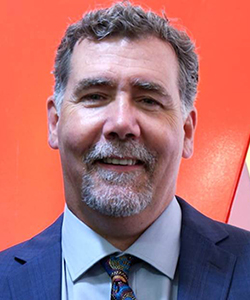
Lives of Consequence
Dr. Christopher C. Beyrer ’81

The Desmond M. Tutu Professor of Public Health and Human Rights at the Johns Hopkins Bloomberg School of Public Health
An internationally renowned expert on AIDS, Dr. Christopher C. Beyrer ’81 is the inaugural Desmond M. Tutu Professor in Public Health and Human Rights at Johns Hopkins University, with joint appointments in epidemiology, international health, health, behavior and society, and nursing. He is the founding director of the Center for Public Health and Human Rights at the Johns Hopkins Bloomberg School of Public Health; associate director of the Center for Global Health; the co-principal investigator for the Johns Hopkins Center for AIDS Research; and past president of the International AIDS Society, the world’s largest body of HIV professionals.
Dr. Beyrer is the author of more than 250 papers and the author or editor of six books, including “War in the Blood: Sex Politics and AIDS in Southeast Asia” and “Public Health and Human Rights: Evidence-Based Approaches.” He has testified before the U.S. Senate and House of Representatives regarding HIV, AIDS and human rights, and has served on the Scientific Advisory Board for the U.S. President’s Emergency Plan for AIDS Relief for the Obama Administration. He has also advised organizations including the National Institutes of Health, the World Bank, the World Health Organization, the Open Society Foundations and many others. In 2016, he served as chair of the biennial International AIDS Conference held in Durban, South Africa.
Born in Berne, Switzerland, and raised on Long Island, Dr. Beyrer followed his father -- Dr. Charles R. Beyrer ’56 -- to Hobart. The younger Beyrer majored in history, graduated cum laude and was elected Phi Beta Kappa. After spending time abroad, he returned to the United States and graduated from medical school at SUNY Downstate in Brooklyn, N.Y., where he first encountered AIDS among the large Haitian population as well as the city’s gay population.
Dr. Beyrer later earned a Master’s of Public Health at Johns Hopkins School of Public Health and conducted public health research and fieldwork, particularly in Thailand and Southeast Asia. From 1992 to 1996, he served as field director of Thai PAVE and HIVNET studies at Chiang Mai University in northern Thailand. He has conducted extensive research in the epidemiology of HIV in Thailand, Burma, China, India and across Southeast Asia; in Russia and Kazakhstan, in Malawi, South Africa, and the U.S.
In 2014, he was elected to membership in the U.S. National Academy of Medicine. That same year, he delivered the Convocation address to graduating Hobart and William Smith students. In 2013, he became the 36th recipient of the Medal of Excellence, Hobart College Alumni Association’s highest honor.
